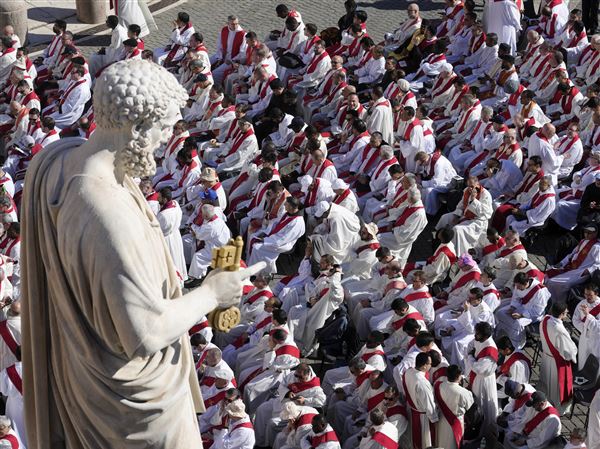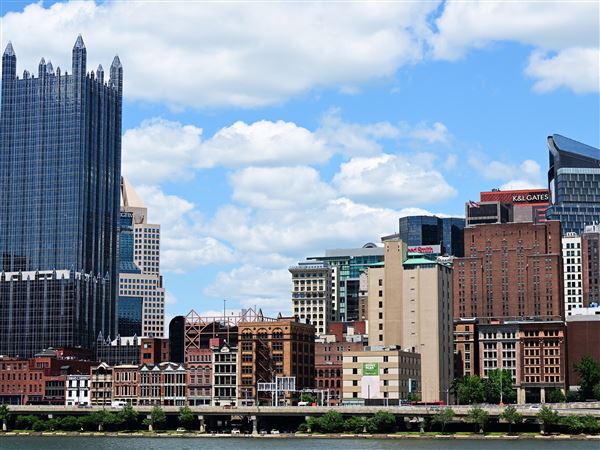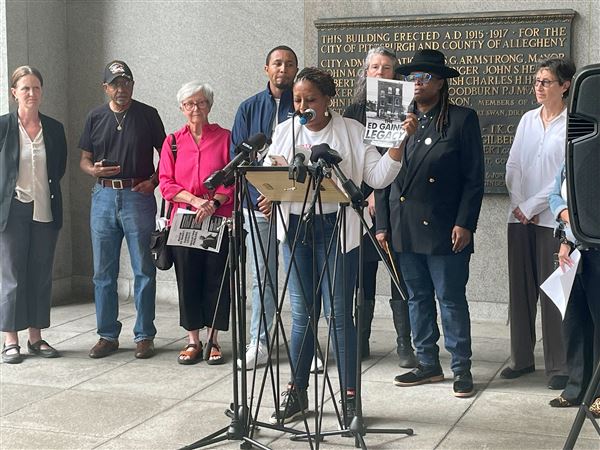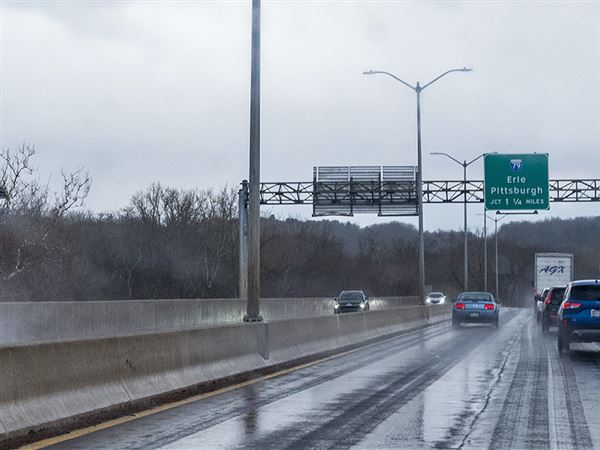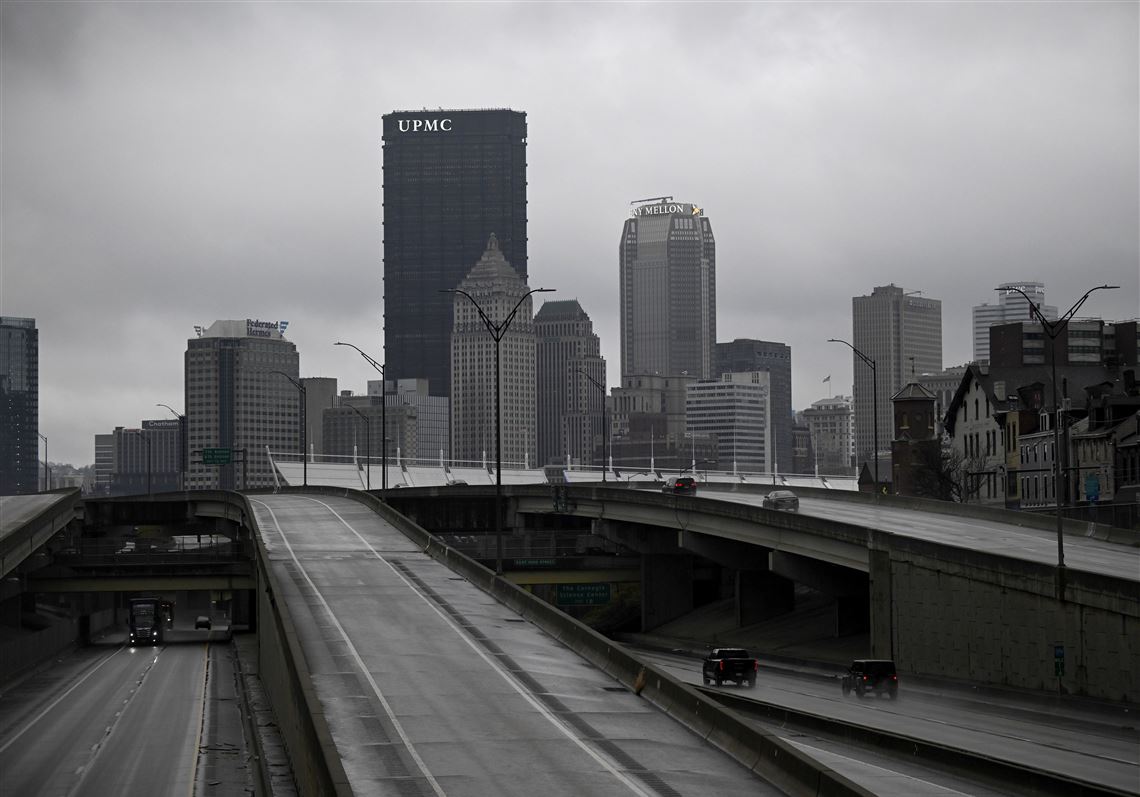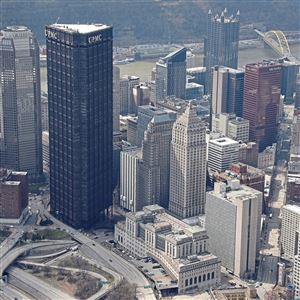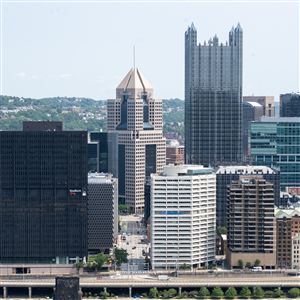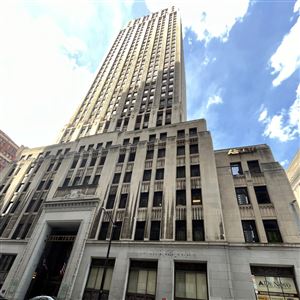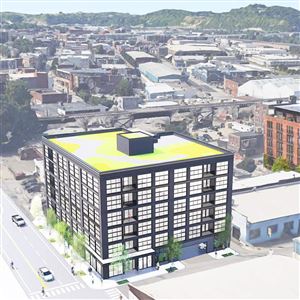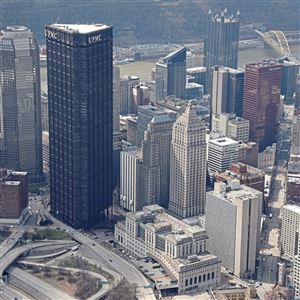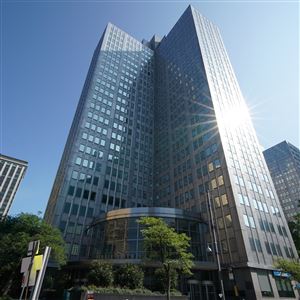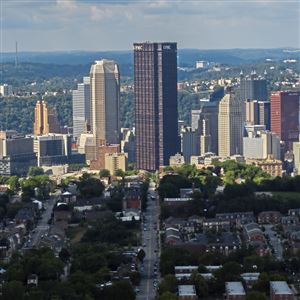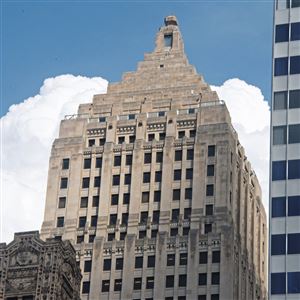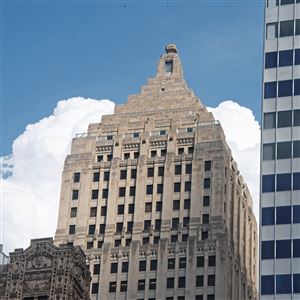Not long ago, Aaron Stauber was among many business owners who raised alarms about safety and cleanliness in Downtown.
But since summer, he has sensed a turnaround — so much so that he may be ready to embark on another big project in the city’s core.
Mr. Stauber, principal and president of Rugby Realty, said Wednesday he’s working with Hullett Properties on a plan to convert an eight-story building Rugby owns at 933 Penn Ave. into roughly 55 residential units. The property now houses an educational institution. But with the lease expiring in June, Mr. Stauber said he’s ready to explore a new use.
It represents the second residential conversion Rugby is considering in Downtown. The other involves the iconic 44-story Gulf Tower on Grant Street, where Rugby wants to turn office space into 190 to 215 residential units and a 150- to 170-room luxury hotel.
Mr. Stauber said he became more enthused about the proposed Penn Avenue project earlier this week when he attended a Christmas party at the Rugby-owned Koppers Building in Downtown and saw how packed it was. He said he’s also sensed an improvement in safety and cleanliness in the Golden Triangle over the past few months. He remembers being upset walking past an alley near the Duquesne Club last summer and seeing a sign urging people not urinate or defecate there.
“I was there this time and everything was fine,” he said.
He attributes part of the improvement to the installation of portable restrooms at two locations in Downtown and to the controversial closing of the homeless shelter at the Smithfield United Church of Christ on Smithfield Street.
“I’ve seen the turnaround and I really see a comeback opportunity [for Downtown],” he said, adding that everybody is on the same page about the need to maintain the city’s center.
The project proposed at 933 Penn is still in the early stages. In addition to the residential units, Rugby and Hullett are planning an outdoor deck at the mezzanine level, one that would include a splash pool, a barbecue pit and other amenities.
But even as Mr. Stauber is becoming more bullish on Downtown, the redevelopment could hinge on the types of subsidies available from the city and perhaps the state.
The Pittsburgh Urban Redevelopment Authority is working on a 10-year tax abatement program for developers who are willing to undertake residential projects in Downtown that include affordable housing or commercial or industrial ventures that create at least 50 new jobs.
To be eligible for the abatement on the residential side, a developer must commit to setting aside at least 10% of the units for households at 50% to 60% of the area median income. Also qualifying would be multi-unit for-sale or owner-occupied residential developments with a minimum of 10% of the units available to those at or below 80% of the AMI.
In January, the URA also launched a $6 million residential conversion program designed to increase the stock of affordable housing in Downtown. To get the incentive, a developer must commit to making at least 20% of the units affordable to those at 80% of the AMI for at least 40 years.
So far, the initiative has had only one taker — Hullett Properties, which received $600,000 in loans as part of the $13.2 million project to convert the Triangle Building at Smithfield and Liberty Avenue into housing.
To try to drum up more interest, the URA tweaked the program in August to increase the per unit subsidy available from $60,000 — $100,000 to $100,000 — $200,000.
Mr. Stauber said such incentives are important for his project and others if the city is to rebound, particularly given current economic challenges such as high interest rates and high construction costs.
“It’s not going to take that much. If they focus on it and get it done, the private sector is listening and watching,” he said. “If the talk is followed by actual action, yeah, I would love to move forward.”
But if “it turns out these things die on the vine, I’ll put the brakes on it,” he added.
Rugby also is talking to the city about similar incentives for the Gulf Tower conversion. Larry Walsh, Rugby principal and chief operating officer in Pittsburgh, said Mayor Ed Gainey and others in the city have been “very supportive,” although no deal has been reached.
Mr. Gainey has been adamant that developers include affordable housing in developments subsidized by the city. Whether the Gulf Tower conversion would include such a component has yet to be decided, Mr. Walsh said.
“We’re definitely talking about it and trying to accommodate it but it hasn’t been finalized yet,” he said.
Rugby is working with New York City-based Left Lane Development on the Gulf Tower conversion. Mr. Walsh said they are still shooting for a 2025 or 2026 completion.
New Jersey-based Rugby isn’t the only one considering full or partial residential conversions in Downtown.
Others include the owners of Three Gateway Center, 525 William Penn Place, EQT Tower, the former YWCA building on Wood Street, and possibly 601 Grant Street. The old GNC headquarters on Wood also is in the middle of an office-to-residential rehab.
At the same time, Rugby has more than a passing interest in what’s been happening in Downtown, both in terms of safety and cleanliness and overall vitality. In addition to the Gulf and Koppers towers, it owns the Frick Building, another Grant Street landmark, as well as four buildings on Liberty and six on Penn.
Mr. Stauber said the keys to bringing Downtown back include keeping the focus on making it cleaner and safer and providing “thoughtful” incentives to help developers convert buildings to residential.
The way he sees it, Downtown was thriving before COVID-19 hit.
“For me, [the pandemic] was just a pause. I’m looking to pick up where we left off. Downtown was on fire right before COVID. There was an amazing amount of energy and investment. Then COVID happened. I call that a pause. We’re going to pick up where we left off,” he said.
Mark Belko: mbelko@post-gazette.com
First Published: December 7, 2023, 10:30 a.m.
Updated: December 8, 2023, 10:47 a.m.

